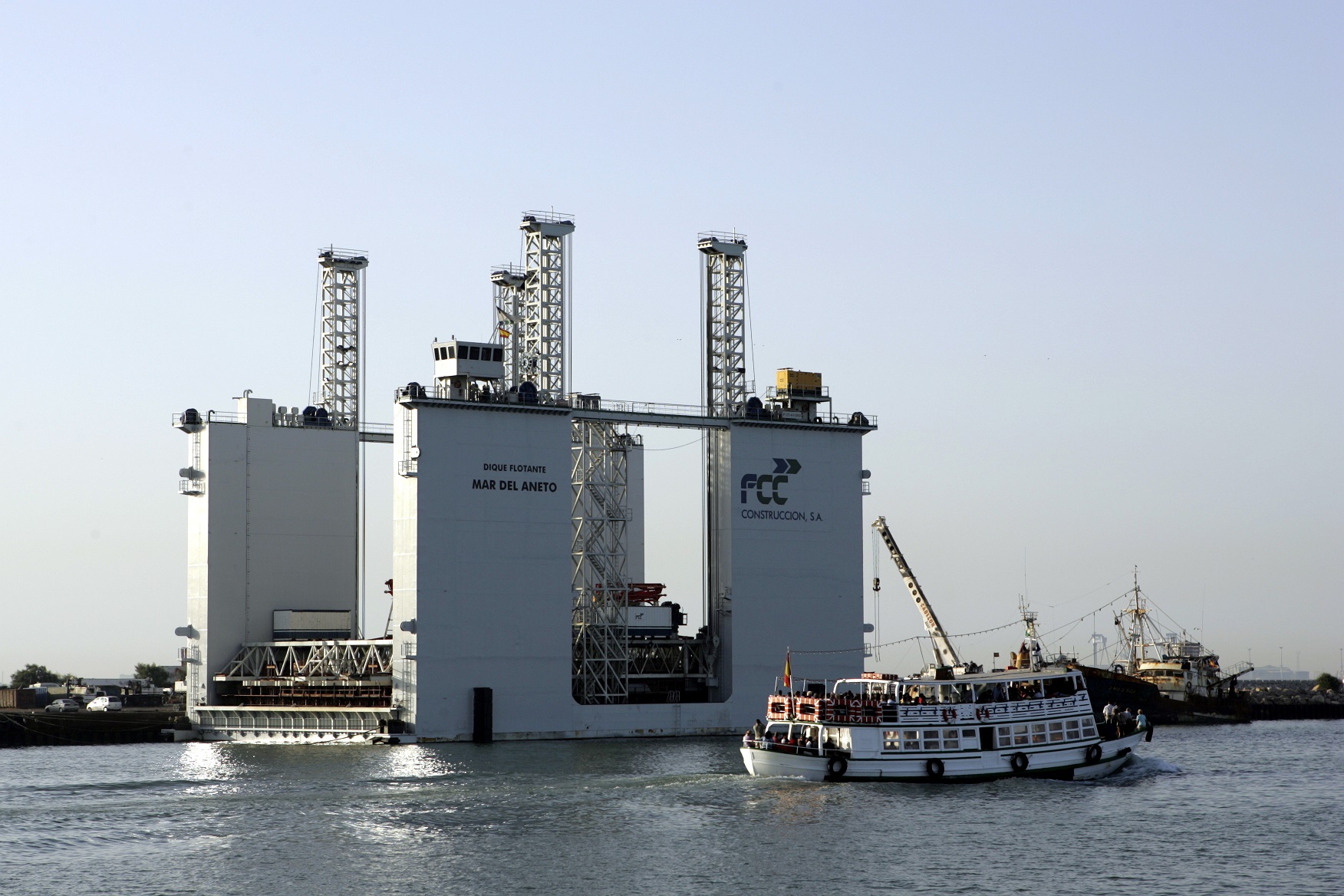FCC wins its first contract in Brazil, now covers all Latin America
- The Citizen Services Group is leading a consortium to build the 407-million-euro Açu Superport about 315 kilometres north of Rio de Janeiro
- Açu will be the world’s third-largest port and America’s biggest port, capable of handling 350 million tons of cargo per year

With Brazil FCC has filled in the last gap in its coverage of Latin America’s key countries. The Citizen Services Group has won its first major contract with the South-American giant and will be building the expansion of the Açu Superport, which lies about 315 kilometres north of Rio de Janeiro. The project has a price tag of over 407 million euros and a completion period of 32 months. The contract calls for FCC to build Terminal TX-1 in Açu, which is located in São João da Barra, in north-eastern Brazil, an area that produces 85% of the country’s gas and oil. The terminal is an extension of a recently built quay that requires a new breakwater before it can be put into operation.
FCC is the leader of the consortium that will be taking on the project, a complex job of civil engineering, as the sheer magnitude of the job shows. A 2,438-metre-long caisson-type quay will be built, which will involve the manufacturing and sinking of 49 reinforced-concrete caissons, plus a 600-metre rubble mound breakwater. The huge caissons are an average of 45 metres long, 24 metres across and 18 to 29 metres deep.
The new breakwater is going to be tricky to build. Its first nine caissons will be cast in Algeciras, Cádiz, because Açu does not yet have the necessary facilities. These caissons will be moved from Algeciras to Açu in semi-submersible vessels. During their 15-day crossing they will cover 4,300 nautical miles (the equivalent of 7,960 kilometres).
The two FCC Construcción-owned floating docks making the caissons, the Mar del Aneto and the Mar del Enol, will make the transoceanic voyage too. Once they have reached Açu, the nine caissons will mark the area where the floating docks will be moored. The construction work on the foundations will be done by a number of vessels, including FCC’s split barges Bocami and Acanto.
The contract includes other activities as well, such as preliminary dredging of the sea bottom down to an average depth of 31 metres (4,100,000 m3), construction of the superstructure completing the breakwaters, and the installation of nautical equipment and beacons.
The materials to build the harbour will be mined from the Itaoca quarry 70 kilometres away, which belongs to the client.
The harbour lies within the Açu Superport industrial complex, an area of 90 square kilometres, equivalent to 2.5 times the size of Manhattan Island. It will have two terminals with 17 kilometres of quays and 40 berths, capable of accommodating ships laden with up to 400,000 tons.
The new facilities will make it possible for Açu to receive cargos of iron, oil, steel, coal and granite and will provide mooring for well-known ships such as the Capsize, which can carry 220,000 tons. The new Açu Superport will have a lot of potential for the oil and gas industry, because it is so close to the Campos Basin, one of Brazil’s biggest crude-producing areas. Forecasts are for 350 million tons per year once the project is finished.
The new contract was awarded to a company formed by LLX (of the EBX Group) and Minas Río (of the Anglo American Group). LLX belongs to Eike Batista, the eighth-richest man in the world according to Forbes Magazine. Anglo America is one of the largest mining companies in the world, specializing in platinum, diamonds, copper, nickel, iron ore and coal, with mines all over the world.
FCC in Latin America
FCC has filled in the last gap in its coverage of the major Latin-American markets now that it has reached Brazil, a strategic area in FCC’s internationalization drive. Some of the foremost projects the Citizen Services Group is involved in at present in the area are the construction of Line 1 of Panama’s metro system, Ciudad Hospitalaria in Panama City, a new access channel to the Panama Canal from the Pacific, and the Mina de Cobre dual carriageway.
In Costa Rica FCC is hard at work extending the Cañas/Liberia national road in Guanacaste, and FCC’s Globalvía holds a concession to operate the San Jose/Caldera toll motorway. A few short days ago, the Citizen Services company reached out to Colombia, too, securing a contract to build a control tower at El Dorado Airport, which is Latin America’s number-one airport in terms of cargo volume and third largest in terms of passengers.
Harbour construction experience
FCC has a great deal of experience dealing with complex harbour construction projects, such as the floating dock in La Condamine Harbour, Monaco, which was the first in the history of engineering to be built entirely in a drydock (located in Algeciras Bay), floated, and sailed to its final site, where its anchoring operations and land connections were finalized. The distance between Algeciras and Monaco is 816 nautical miles (1,500 kilometres), the equivalent of a 12-day voyage.
FCC also built the marina at Sant Adrià del Besòs, the Olympic Port in Barcelona, Igoumenitsa Port in Greece, and the bulk solids terminal at the port of Castellón. It recently enlarged El Musel in Gijón, improved the south basin of the harbour at Castellón, and built Seville’s new lock and the lock at Vienna.
In late 2011 FCC won the contract for the new Container Terminal at Cádiz, which will be finished in 2015. It is also currently engaged in building the Química Quay at Tarragona.








